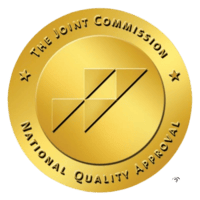Understanding Addiction Withdrawal
It’s important to understand addiction withdrawal. Proper nutrition plays a significant role in alleviating the distressing symptoms associated with this challenging process. Different addiction types yield varying symptoms and timelines, making it a multidimensional problem. For instance, alcohol withdrawal can cause symptoms like anxiety and tremors, while opioids might cause symptoms within 12 hours. Understanding these variations is pivotal to devising effective management strategies, including a nutrition plan tailored to individual needs.
Additionally, withdrawal symptoms can range from mild discomforts, like nausea, to severe crises, such as seizures. The intensity and duration are influenced by factors like the substance used and the individual’s health. Understanding these variations in addiction withdrawal is pivotal to devising effective strategies for managing withdrawal symptoms, including the integration of a nutrition plan tailored to the individual’s unique needs and circumstances.
The Role of Nutrition in Recovery
Adequate nutrition plays a pivotal role in mitigating withdrawal symptoms and fostering well-being. A well-structured diet can help replenish nutrients deprived during substance use, aiding in repairing damage and facilitating clarity. Recovery Meal Plans, specifically tailored to a person’s needs, can balance proteins, carbohydrates, fats, vitamins, and minerals. Accurate tailoring can help detoxify, repair tissues, and improve brain health. It’s essential to remember that while nutrition is crucial, it is one piece of a thorough treatment plan, alongside other therapeutic interventions.
Moreover, supplement use can play a significant role in recovery. Often, individuals recovering from substance abuse may struggle with nutrient absorption. In such cases, supplements can fill gaps, ensuring the body gets essentials to heal. However, it’s crucial to remember nutrition is just one component of recovery. It should be complemented with other therapeutic interventions for optimal outcomes.
Nutritional Deficiencies in Addiction
Prolonged substance abuse often leads to significant nutritional deficiencies, exacerbating withdrawal symptoms and hindering healing. Malnutrition effects are multifaceted, impacting both physical and mental well-being. It’s common for individuals battling addiction to neglect balanced meals, leading to nutrient deficiencies. A weakened immune system is a well-documented consequence, causing frequent illnesses among those with addiction. Additionally, nutrient deficiencies can lead to mood disorders, worsening the psychological struggle during withdrawal and slowing recovery.
Supplements can bridge nutritional gaps, providing a concentrated source of necessary nutrients. For instance, B vitamins can restore nerve function and energy levels. However, supplements are not standalone solutions; they should be part of a holistic nutritional approach. Ultimately, comprehensive understanding and management of nutritional deficiencies are vital in crafting an effective recovery strategy for individuals facing addiction. This combined approach supports the body’s repair effort and aids in a smoother recovery journey.
The Body’s Response to Proper Nutrition
When the body receives a diet rich in essential nutrients, it triggers metabolic functions that can help mitigate discomfort associated with withdrawal. The body’s metabolic processes are tied to digestive health, crucial in processing nutrients. When proper nutrition is introduced, the body starts correcting imbalances caused by addiction. The metabolic rate is improved, aiding food-to-energy conversion, cell growth, repair, and other functions impaired by misuse.
Proper nutrition promotes digestive health, facilitating nutrient absorption and toxin elimination. A well-functioning digestive system can decrease bloating, constipation, and other discomforts during withdrawal. This improvement in digestive health, alongside optimized metabolic functions, contributes significantly to the body’s recovery efforts, helping improve overall wellness during the withdrawal journey.
Essential Nutrients for Addiction Withdrawal
In managing addiction withdrawal, specific nutrients help mitigate physical and psychological challenges during this period. Incorporating these nutrients into one’s diet is essential for managing symptoms effectively. Amino acids help restore neurotransmitters, crucial for mood stability. Vitamins B and C aid energy production and immune strengthening. Minerals like magnesium and zinc reduce anxiety and improve sleep quality. Omega-3 fatty acids reduce inflammation and support cognitive function, while calcium mitigates muscle spasms during detox.
Supplement use may be necessary when nutrients cannot be adequately sourced from food alone. Consulting a healthcare professional before starting any supplement regimen is crucial to ensure safety and efficacy. This personalized approach ensures individuals receive balanced nutrition, facilitating a smoother withdrawal and enhancing recovery outcomes.
Nutrient-Dense Food Choices for Recovery
Shifting to nutrient-dense foods during recovery replenishes essential vitamins and minerals. These foods are rich in nutrients and low in calories, providing necessary fuel for recovery. Integrating cooking methods like steaming, grilling, or roasting retains nutrients and enhances taste without extra fats or sugars. A balanced intake of food groups ensures complete nutrition.
Meal planning strategies avoid impulsive, unhealthy food choices and ensure balanced, complete meals. Preparing meals in advance, making grocery lists based on nutritional needs, and setting regular mealtimes significantly contribute to consistent nutrition intake. Consulting a nutritionist for personalized guidance helps foster healthier eating habits and supports the body’s healing process during recovery.
Hydration’s Role in Easing Symptoms
Maintaining hydration significantly eases withdrawal symptoms and promotes overall health during recovery. Important for functions like temperature regulation, digestion, nutrient absorption, and waste elimination, adequate hydration supports brain function, often impacted during withdrawal. Electrolyte balance, including sodium, potassium, and magnesium, is essential for fluid balance, nerve, and muscle function, and can be disrupted during withdrawal.
The body may rapidly excrete electrolytes, risking dehydration. To ensure hydration, individuals should consume appropriate fluids daily, not limited to water. Herbal teas and fruit-infused water contribute to intake, but caffeine or sugar-rich drinks, which dehydrate, should be avoided. Simultaneously, a balanced diet restoring electrolyte balance supports recovery.
Practical Tips to Maintain Nutritional Balance
‘Balancing Macros’ involves maintaining an optimal intake of macronutrients—proteins, carbohydrates, and fats—which play significant roles in recovery. Proteins repair tissues, carbohydrates provide energy, and fats aid hormone production. ‘Supplement Usage’ addresses certain deficiencies, supporting recovery. B vitamins aid nerve function and energy, while magnesium alleviates anxiety and insomnia. Guiding these choices are key strategies for managing nutritional balance during withdrawal.
Hydration is essential as dehydration can exacerbate withdrawal symptoms. Drinking adequate water is crucial. Professional guidance from a dietitian can ensure dietary strategies align with unique needs and goals. These tips create a nutritional foundation to ease withdrawal and support recovery. Such careful planning not only aids immediate recovery but builds the basis for longer-term health and well-being, helping manage addiction withdrawal more effectively.
Long-Term Benefits of Nutritional Therapy
Nutritional therapy provides long-term benefits beyond alleviating withdrawal symptoms, playing a pivotal role in sustaining health during recovery. Therapy Success Rates of those engaging in nutritional therapy are notably higher, as proper nutrition equips the body with tools to repair addiction damage, fostering resilience. It fortifies the immune system and enhances mental health, promoting well-being and successful, sustained recovery.
Nutritional Education empowers individuals with knowledge to make informed dietary choices. Understanding the impact of food on health and recovery instills control, fostering confidence in managing recovery. Nutritional therapy offers a holistic approach to addiction recovery, providing lasting benefits that extend beyond the withdrawal phase.

Final Thoughts
Crucial nutrition can greatly alleviate addiction withdrawal symptoms by replenishing essential nutrients, reducing inflammation, and supporting physical and mental health. The role of hydration is essential in easing discomfort and promoting metabolic functions. Maintaining a balanced diet not only aids in immediate withdrawal but also has long-term benefits for recovery. Ultimately, nutritional therapy plays a critical role in the holistic treatment and recovery journey of individuals battling addiction.
At BlueCrest Detox, we’re dedicated to elevating you from the struggles of substance use to the peaks of recovery and resilience. Our expert team offers personalized, evidence-based treatment services tailored to support your unique journey toward healing. Reach out to us for the compassionate care you deserve on your path to wellness. Follow us on Facebook for ongoing support, insights, and inspiration on your recovery journey.
Frequently Asked Questions
Can Nutritional Therapy Replace Traditional Addiction Treatment Methods?
While Nutrition Therapy Ethics support the use of nutritional therapy as an auxiliary approach, it’s not considered a replacement for traditional addiction treatments. Its acceptance as an alternative treatment varies across professional healthcare communities.
What Are Some Potential Side Effects of Nutritional Therapy in Addiction Recovery?
Potential side effects of nutritional therapy in addiction recovery include nutritional risks like malnutrition due to an unbalanced diet and therapy limitations, such as the inability to address psychological aspects of addiction.
Are There Any Specific Dietary Restrictions During Addiction Withdrawal?
During addiction withdrawal, dietary considerations such as Detox Dieting can play a significant role. However, individual allergen considerations must also be addressed to guarantee the dietary plan doesn’t exacerbate health complications.
How Long Does It Take to See the Effects of Nutrition-Focused Recovery?
The effects of nutrition-focused recovery, or ‘Detox Duration Variance,’ largely depend on individual health status and adherence to personalized nutrition plans. Generally, noticeable improvements can be seen within a few weeks to several months.
Can I Use Supplements in Place of Nutrient-Dense Foods During Recovery?
While supplements can be beneficial, they should not replace nutrient-dense foods in recovery dieting. It’s crucial to guarantee supplement safety by consulting with a healthcare provider for personalized advice on dietary supplementation during recovery.




